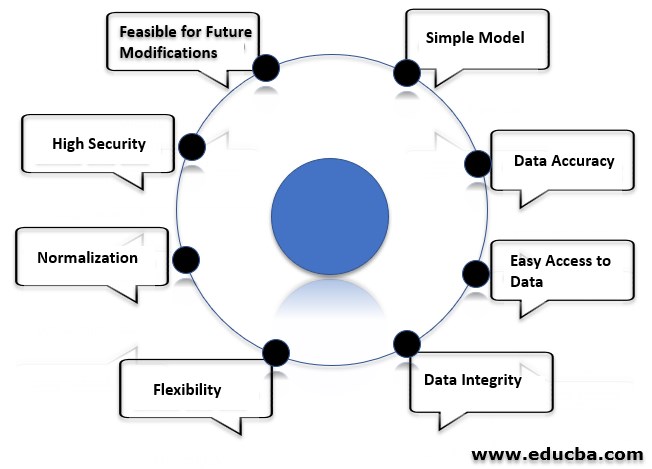Benefits of Relational Database
In this article, we will explore the various benefits of using a relational database. A relational database is a type of database that organizes data into tables, with each table consisting of rows and columns. It allows for efficient storage, retrieval, and manipulation of data, making it a popular choice for many applications.
Improved Data Integrity
One of the key benefits of a relational database is improved data integrity. With the use of constraints, such as primary keys and foreign keys, relational databases ensure that data is accurate and consistent. Primary keys uniquely identify each row in a table, while foreign keys establish relationships between tables. This ensures that data is properly linked and avoids inconsistencies or duplicate entries.
Flexibility and Scalability
Relational databases offer flexibility and scalability, allowing for the addition or modification of data without affecting the entire database structure. With the use of tables, data can be organized into logical units, making it easier to manage and update. Additionally, relational databases can handle large amounts of data and can scale horizontally by adding more servers or vertically by upgrading hardware.
Efficient Data Retrieval
Another advantage of relational databases is efficient data retrieval. By using structured query language (SQL), users can easily retrieve specific data from multiple tables using various conditions and filters. This allows for complex queries and analysis, enabling businesses to make informed decisions based on the data stored in the database.
Data Consistency and Accuracy
Relational databases ensure data consistency and accuracy through normalization. Normalization is the process of organizing data into tables to eliminate redundancy and dependency issues. By reducing data duplication, updates and modifications only need to be made in one place, improving data accuracy and reducing the chances of errors.
Data Security
Relational databases offer robust security features to protect sensitive data. Access control mechanisms, such as user roles and permissions, can be implemented to restrict unauthorized access to the database. Additionally, encryption techniques can be applied to secure data both at rest and during transmission, ensuring its confidentiality and integrity.
Concurrency Control
Concurrency control is a critical aspect of relational databases, especially in multi-user environments. It ensures that multiple users can access and modify the database simultaneously without conflicting with each other. Techniques like locking mechanisms and transaction management guarantee data integrity and prevent data corruption or inconsistencies.

In conclusion, relational databases offer numerous benefits, including improved data integrity, flexibility, efficient data retrieval, data consistency, data security, and concurrency control. These advantages make them a powerful tool for managing and organizing data in various applications. By leveraging the benefits of relational databases, businesses can enhance their data management processes and make better-informed decisions.
Frequently Asked Questions – Benefits of Relational Database
1. What is a relational database?
A relational database is a type of database that organizes data into tables with rows and columns and establishes relationships between these tables.
2. What are the benefits of using a relational database?
Relational databases offer several advantages, including:
Efficient data organization and storage
Flexible data retrieval and querying
Ensures data integrity and consistency
Supports concurrent access and multi-user environments
Enables data normalization and reduces data redundancy
3. How does a relational database improve data organization and storage?
A relational database allows data to be stored in tables, which can then be linked together using relationships. This structure provides a logical and organized way to store and retrieve data efficiently.
4. What is the significance of flexible data retrieval and querying?
Relational databases allow users to perform complex queries and retrieve specific data using SQL (Structured Query Language). This flexibility enables efficient data retrieval based on various criteria.
5. How does a relational database ensure data integrity and consistency?
Relational databases enforce data integrity through constraints, such as primary keys, foreign keys, and unique constraints. These constraints prevent invalid or inconsistent data from being inserted or updated.
6. How does a relational database support concurrent access and multi-user environments?
Relational databases use locking mechanisms to handle concurrent access by multiple users. This ensures that data remains consistent and prevents conflicts when multiple users try to modify the same data simultaneously.
7. What is data normalization, and how does a relational database enable it?
Data normalization is the process of organizing data to minimize redundancy and dependency issues. Relational databases provide features like normalization forms and referential integrity to help achieve a well-structured and efficient database design.
8. Can a relational database handle large amounts of data?
Yes, relational databases are capable of handling large amounts of data. They can efficiently store and retrieve data even when dealing with millions or billions of records, making them suitable for enterprise-level applications.
9. Are there any disadvantages of using a relational database?
While relational databases offer numerous benefits, they may not be the best choice for certain scenarios, such as when dealing with unstructured or rapidly changing data. In such cases, other types of databases like NoSQL databases might be more suitable.
10. What are some popular relational database management systems (RDBMS)?
Some well-known RDBMS include MySQL, Oracle Database, Microsoft SQL Server, PostgreSQL, and SQLite.




